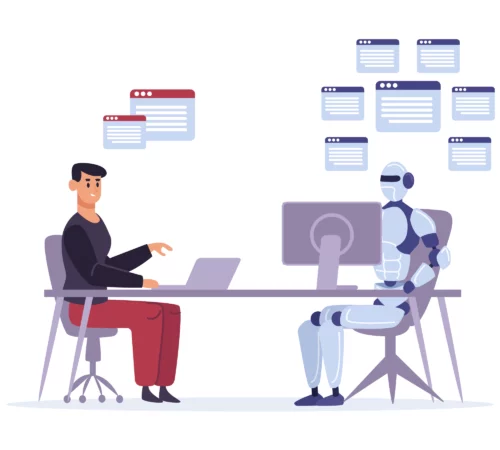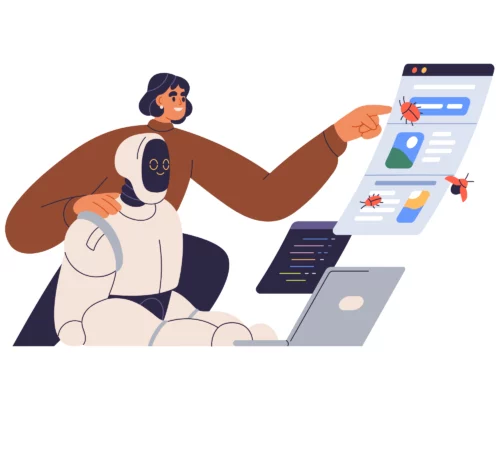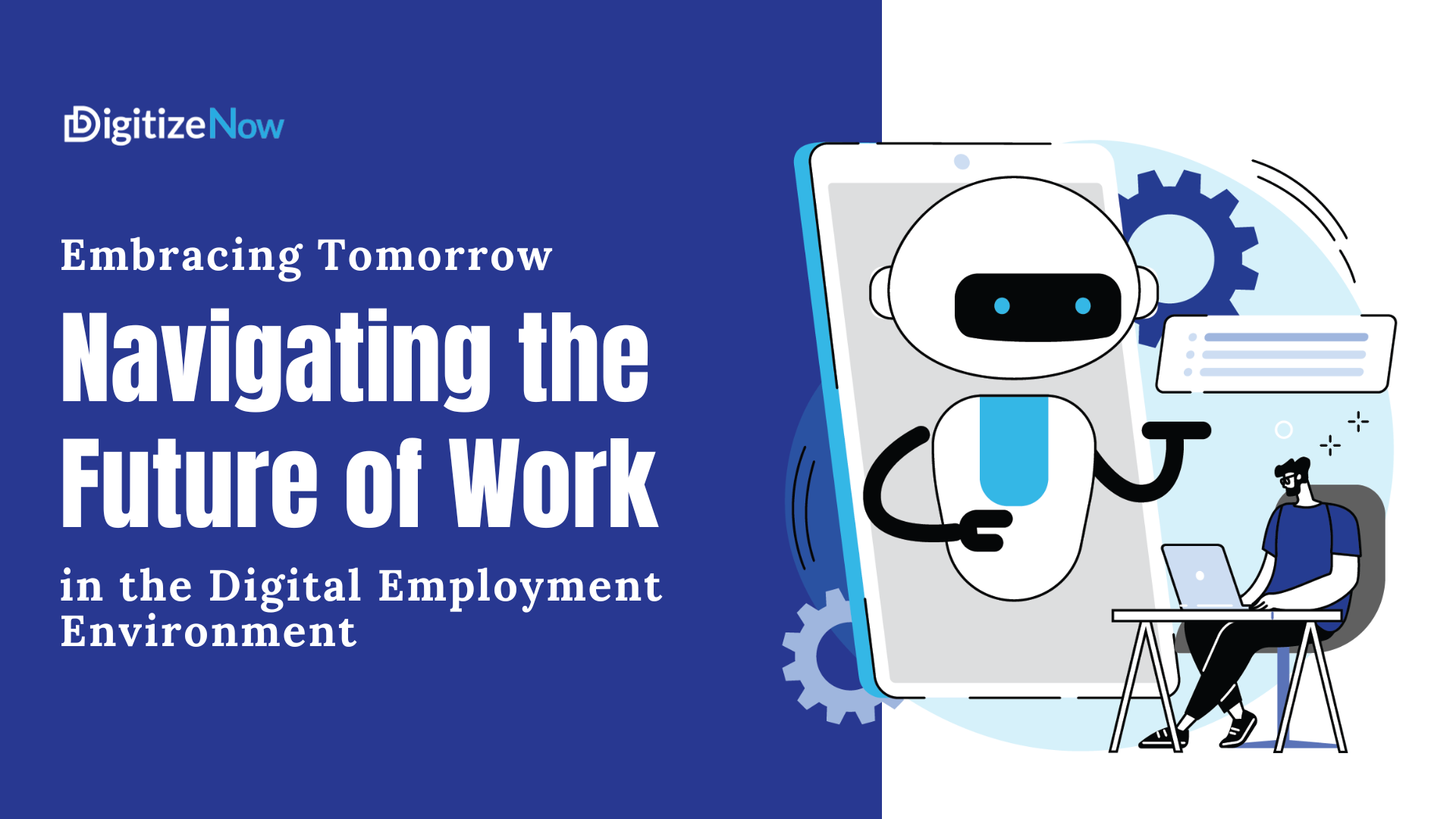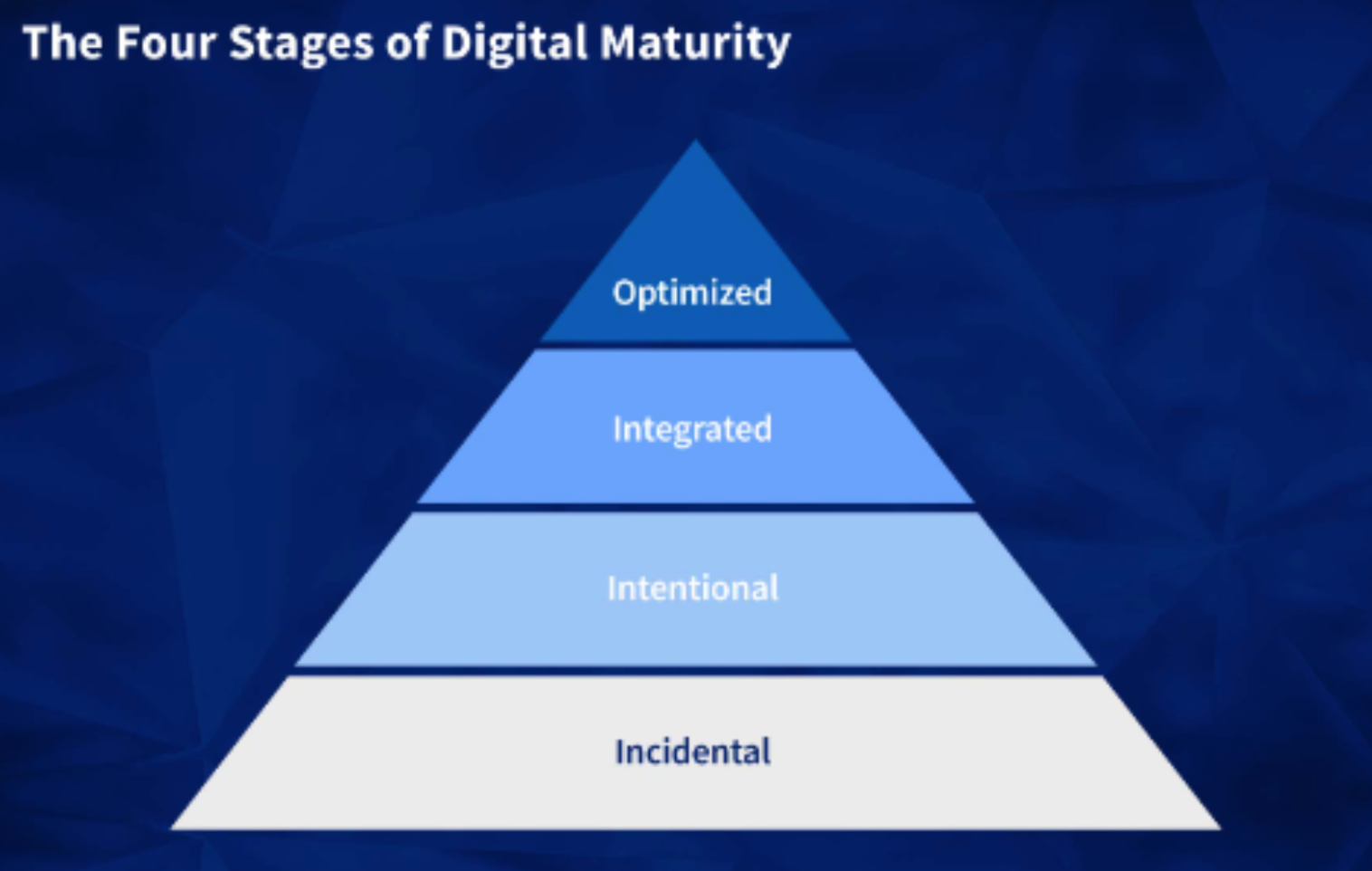Entering the fourth industrial revolution with AI and automation, the future of work is already changing how we work on both a practical and a theoretical level.
Technology has enabled us to work more efficiently and effectively, resulting in a massive increase in productivity. However, this has also decreased the number of jobs available, requiring us to become more creative and resourceful in our job search.
As advancements in automation and artificial intelligence continue to reshape industries and economies worldwide, understanding the significance of this transformative era becomes increasingly crucial.
The future of work holds immense relevance in today’s rapidly evolving digital landscape. With automation and AI driving unprecedented disruptions, traditional job roles are being redefined, and new opportunities are emerging.
As technology infiltrates various sectors, it brings challenges and possibilities that require our attention and analysis.
In this blog, we delve deep into the changing landscape of work and unravel its intricate layers. We will examine how AI and automation are revolutionizing digital employment, reshaping our roles, and transforming the concept of work itself.
From the rise of remote work and the gig economy to the integration of intelligent technologies in traditional industries, we aim to shed light on the dynamic shifts occurring today.
Let’s navigate through the key factors shaping the future of work and explore the various implications they hold. Together, we will uncover the potential opportunities, contemplate the challenges, and envision a future that balances technology’s capabilities with the workforce’s needs.
The future of work holds exciting possibilities, so let’s take this journey together!
The Role of Artificial Intelligence (AI) in the Future of Work
As we dive into the world of artificial intelligence (AI), we have a pivotal role in shaping the future of work. An artificial intelligence system simulates human intelligence in any digital phase and is programmed to mimic learning, problem-solving, and decision-making functions.
Within the context of the future of work, AI is revolutionizing traditional work practices and opening up new possibilities for innovation.
We explore the various applications of artificial intelligence in the workplace, such as streamlining tasks and enhancing customer experiences.
This includes AI-powered chatbots for customer support, predictive analytics for decision-making, and robotic process automation for repetitive tasks. These improve operational efficiency, driving productivity and innovation in the digital workforce.
From healthcare and finance to manufacturing and retail, artificial intelligence drives significant advancements and modifies various facets of traditional business models.
Through automation, predictive analytics, and machine learning algorithms, AI enables businesses to make data-driven decisions, optimize processes, and deliver personalized experiences to customers.

However, alongside these advancements comes the potential impact of AI on job roles and skill requirements in the future of work. As AI continues to evolve, it has the potential to automate routine tasks, leading to concerns about job displacement and shifts in the labor market.
Consequently, there is a growing emphasis on the need for upskilling and reskilling in the digital workforce to adapt to changing job requirements and harness the opportunities presented by artificial intelligence.
The role of artificial intelligence in the future workplace is multifaceted and transformative. As we navigate the intersection of AI, the future of work, in the digital workforce, it is essential to understand its applications, its impact on industries, and the evolving job landscape to prepare for the opportunities and challenges ahead.
Impacts on Digital Employment
At its core, the digital economy encompasses economic activities based on digital technologies, such as AI and automation, shaping the future of work.
The digital economy encompasses the ecosystem of economic activities driven by digital technologies, including AI and automation, reshaping traditional industries and job roles.
The emergence of digital technologies has created new employment opportunities. From remote work and flexible job arrangements to the emergence of new job roles in technology-driven sectors, digital technologies are opening up avenues for individuals to enter and thrive in the future workforce.
However digital technologies offer numerous opportunities, but they also present challenges that workers and businesses must navigate:
- Skills Gap: The rapid pace of technological change has created a skills gap, where the skills required for jobs are evolving faster than workers can adapt. This challenges individuals and businesses to keep up with the demand for digital skills.
- Job Displacement: Automation and AI have the potential to automate routine tasks, leading to job displacement in specific industries. Workers may face the risk of unemployment or the need to transition to new roles that require different skill sets.
- Security Threats: As businesses increasingly rely on digital technologies, they become vulnerable to security threats such as data breaches, identity theft, and generating false information. Protecting sensitive information and maintaining security measures are constant challenges for businesses operating in the digital economy.
By addressing these challenges and leveraging opportunities, individuals and organizations can thrive in the dynamic landscape of the digital economy.
The Human Element: Embracing Collaboration and Creativity
In our fast-paced world, where AI and digital tech are taking over, it’s crucial to remember the importance of the human element. AI and automation can crunch numbers and do repetitive tasks like pros, but they can’t match a human’s unique skills like critical thinking, problem-solving, and adapting to new situations.
These skills set us apart and are crucial to driving innovation and success in the future of the workplace.
Human factors that make a digital world more enhanced with creativity, emotional intelligence, and interpersonal skills:
- Creativity fuels innovation, enabling individuals to devise novel solutions to complex problems.
- Emotional intelligence fosters effective communication, empathy, and collaboration, essential for building solid relationships and navigating the intricacies of human interaction in digital environments.
- Interpersonal skills, including teamwork and leadership, facilitate collaboration and collective problem-solving, enhancing productivity and organizational performance in the digital workforce.
Rather than replacing human intelligence, AI and automation augment it. Collaboration between humans and machines is essential for maximizing potential. Humans contribute creativity, intuition, and ethics, while machines offer computation and data processing. This synergy drives innovation and productivity in the future of work.

Building a Resilient Future Workforce
Organizations must build a workforce that can adapt as technology evolves rapidly.
Many strategies are adapted to encourage agility, flexibility, continuous learning, cross-training, and upskilling. In addition, employees can be better equipped to navigate uncertainty and embrace change by embracing a growth mindset and innovation.
Adopting diversity and inclusion is a proven strategy to boost employee morale and engagement while nurturing a culture of innovation and resilience. By ensuring that all voices are heard and valued, organizations can build a workforce better equipped to navigate challenges and seize opportunities in the digital age.
By investing in education, training, lifelong learning, diversity, and inclusion, organizations can cultivate a resilient workforce capable of thriving in the dynamic and evolving landscape of the digital economy.
The future of work is undergoing a profound transformation driven by artificial intelligence, automation, and digital technologies. As we navigate this dynamic landscape, it’s clear that embracing change and innovation is essential for success.
By recognizing the importance of human skills, fostering creativity, and promoting collaboration between humans and machines, organizations can harness the full potential of the digital workforce.
Moreover, investing in education, training, and diversity is crucial for building a resilient workforce capable of adapting to rapid technological changes. By embracing these principles, we can navigate the challenges and seize the opportunities of the digital age.



